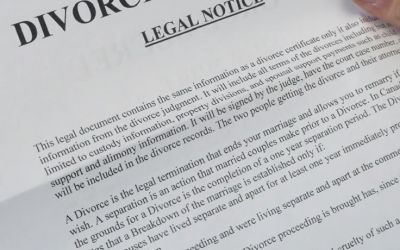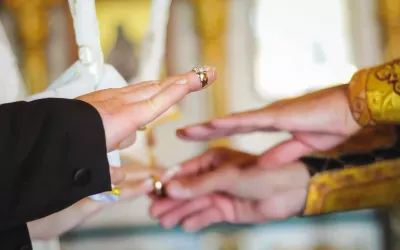Can a Muslim Marry a Non-Muslim? Exploring Sharia Law and Modern Solutions
Table of Contents ▼
Marriage is an essential and beautiful milestone in life, especially for Muslims, who find deep spiritual meaning in it. But when love surpasses religious differences, challenges may emerge, particularly with Sharia law. A question often raised is: can a Muslim marry a non-Muslim?
Let’s explore this issue clearly, with references from trusted Islamic and governmental sources.
Marriage and Sharia Law
Marriage in Islam is more than just a legal arrangement—it is a sacred bond based on love, mercy, and faith. Sharia law, which governs the lives of Muslims, outlines the rules and conditions for marriage. Compatibility in faith is essential for a strong marriage under Sharia law, as religion is seen as central to family life, decision-making, and raising children. The UAE government portal notes that for a marriage to be valid under Sharia law, both spouses should share similar religious foundations. This raises an important question: can a Muslim marry a non-Muslim? The answer differs depending on the gender of the Muslim involved, as Sharia law applies distinct rules for men and women.
Can a Muslim Man Marry a Non-Muslim Woman?
Islam permits a Muslim man to marry a non-Muslim woman, but with specific conditions attached. According to Islamic teachings, a Muslim man may marry a woman from the “People of the Book,” which includes practicing Jews and Christians. This means that a Muslim man can marry a Christian or Jewish woman if she is known for her faithfulness, chastity, and religious commitment.
However, this allowance is not without restrictions. The woman must genuinely follow her faith—atheists or women who reject all religions are not eligible. She must also lead a chaste and modest life. Additionally, the marriage must not interfere with the Muslim man’s religious obligations or the Islamic upbringing of their children. While interfaith marriages are legally allowed in countries like the UAE, practical challenges such as differences in religious holidays, family pressures, and child-rearing can make interfaith unions difficult, and many Muslim countries encourage marrying within the faith for ease of living.
Can a Muslim Woman Marry a Non-Muslim Man?
In Islam, a Muslim woman is prohibited from marrying a non-Muslim man, even if he is from the “People of the Book” (Jews or Christians). While a Muslim man can marry a non-Muslim woman, the reverse is not allowed, and this prohibition is clear in both the Quran and Islamic scholarly interpretations.
The primary reason for this is the leadership role that the husband traditionally holds in the family. Islam prioritizes the protection of a Muslim woman’s faith, and there are concerns that a non-Muslim husband may not support his wife’s religious beliefs or the Islamic upbringing of their children. This prohibition aims to ensure that the woman’s faith is respected and preserved within the family unit, preventing any possible influences that might lead her or their children away from Islam.
Interfaith Marriage in Today’s World
In today’s globalized world, where cultural and religious interactions are a part of everyday life, interfaith relationships have become increasingly common. This shift reflects a broader trend of greater interaction between diverse religious communities. Many countries have had to update or reinterpret their laws to deal with these new social realities. This raises an important question: Can a Muslim marry a non-Muslim?
Muslim-majority countries take different approaches to interfaith marriages, especially when it comes to Muslim women and men marrying non-Muslim partners. In countries like the UAE, non-Muslims can marry under civil law, but Muslim marriages are still governed by Sharia law. This ensures that Muslim religious practices are maintained. On the other hand, Saudi Arabia maintains strict enforcement of Sharia law across all marriages. Despite the shifts in societal norms, these examples show that the fundamental principles of Sharia law have largely remained intact.
Conversion as a Solution?
When a non-Muslim partner decides to embrace Islam, it may clear the path for marriage without the restrictions of interfaith rules. However, it’s crucial that conversion is authentic and sincere. In Islam, converting should not be a mere step to marry someone, but rather a genuine expression of belief in the faith. Islam highly values sincerity, and conversion should come from a deep understanding and commitment to the faith, not simply out of love for another person.
Many scholars advise that couples take the time to study Islam and reflect on their decision before converting. A sincere, heartfelt conversion ensures that the commitment to Islam is genuine and leads to a stronger, more meaningful relationship, both spiritually and emotionally.
Ready to Start Your Journey Together?
-Sharia law’s guidelines exist to protect faith, family, and future generations, not to complicate life. If you’re considering an interfaith marriage, it’s essential to consult with knowledgeable scholars to ensure you fully understand both religious and legal requirements.
At Easy Wedding, we focus on making your Islamic marriage simple, beautiful, and stress-free, wherever you are in your faith journey. Whether you’re preparing for a traditional Nikah or managing the unique challenges of an interfaith marriage, our expert team is dedicated to guiding you throughout the entire process.
Visit Easy Wedding today and begin your journey toward a happily ever after!


